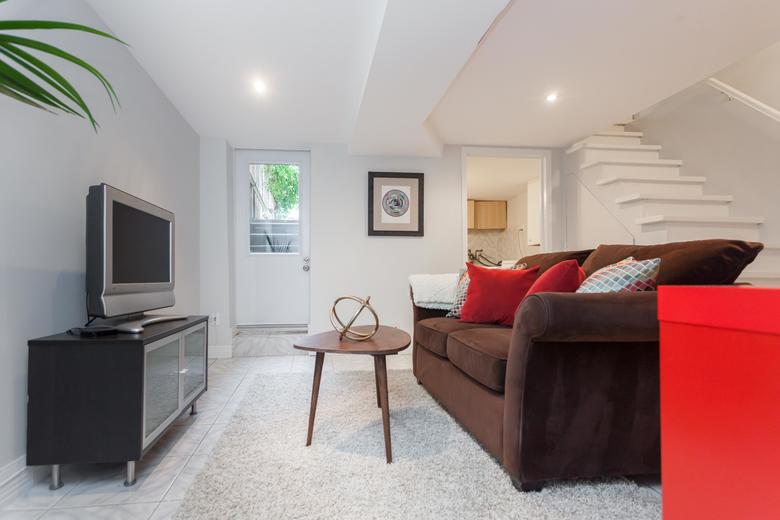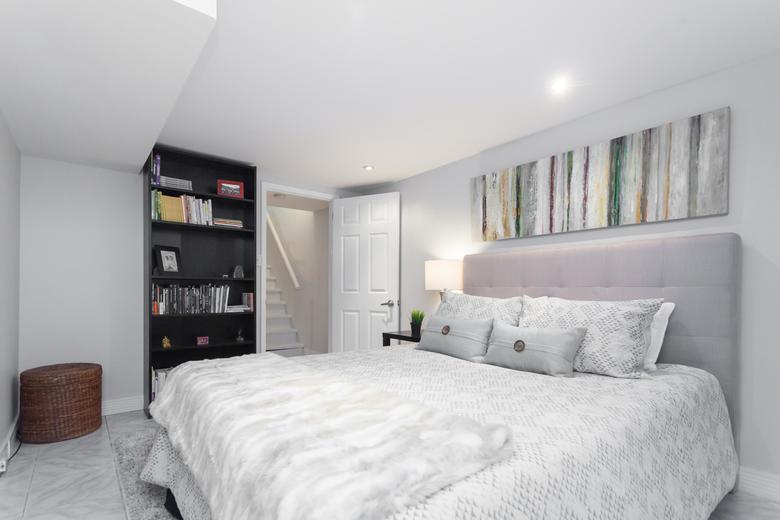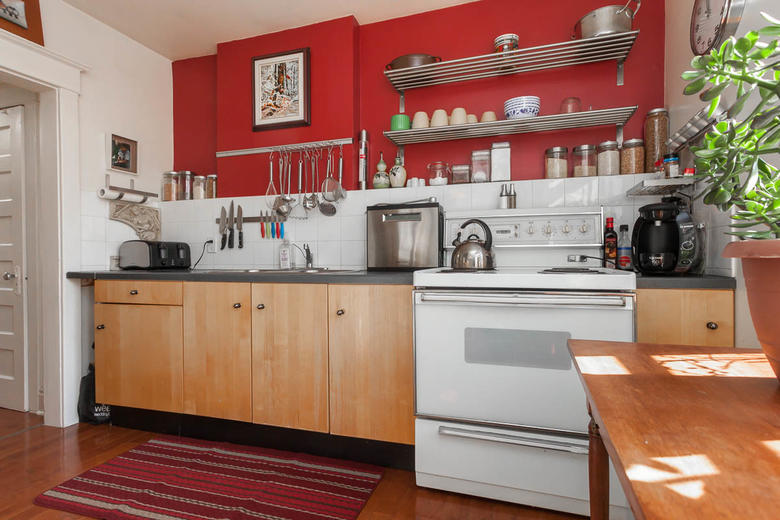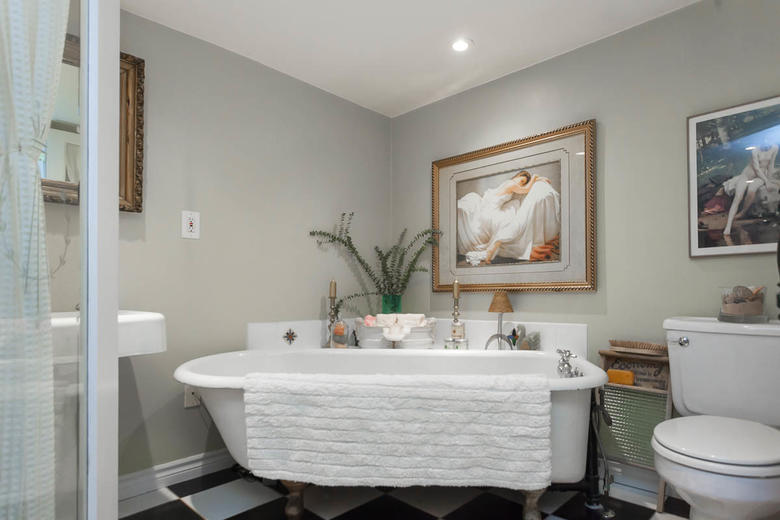Housing prices in Toronto have been written about ad nauseam. It seems like every week we’re talking about how expensive it is to live in this city. But you can’t dismiss the fact that many people simply can’t afford to own a home in this city.
One popular way to combat climbing costs has been to build a basement apartment.
Indeed, while home prices continue to push higher, the rental vacancy rate in the city is at a 16 year low—just 1.1 per cent, according to the Canada Mortgage and Housing Corp. While that is certainly bad news for renters, it can be a plus for homeowners who have the space to build a secondary suite.
Tyler Delaney, Sales Representative with the Julie Kinnear Team, is also renting a separate basement apartment and says it’s a natural fit for Toronto owners:
It’s gotten so expensive that it’s nearly impossible for anyone making a normal income to afford home prices in Toronto without some sort of supplementary income, whether that be through having parents help them out with the downpayment or else having some sort of income coming in from a tenant.
Indeed, having a basement suite can be a great way to pay off your mortgage faster or save for retirement:
The way we look at it is that our tenant pays our non-refundable expenses. So we put into our mortgage which we get back if we sell, and our tenant will take care of things like the property taxes, utilities, that sort of thing. It works out really well for us.
Getting It Built
Unfortunately, there remains a lot of mystery around basement apartments and just what needs to be done to make the space habitable and legal.
The first step is to make sure your neighbourhood is zoned for basement suites. By law, owners must have a permit to add a basement apartment to a single family home. You can check the zoning bylaw at city hall.
There are a number of building codes the new unit will have to comply with. You may have to have the fire department inspect the home and verify it complies with the Fire Code. The main considerations here include things like fire separations between units, working smoke alarms, carbon monoxide detectors, and safe electrical work.
After the fire inspection, there are other things to consider:
- All bathrooms must have a window or an exhaust fan.
- If the main unit has parking, there must also be a spot for the basement unit.
- The minimum ceiling height is 6-feet-5-inches.
- The main entrance must be at least 32 inches by 78 inches.
A Spectrum Of Legality
However, all these bylaws and guidelines coupled with the high demand can lead many people to cut corners. This means many basement apartments in Toronto aren’t actually completely legal:
The city has been turning a blind eye to non-legal apartments for some time simply because demand is so high for living space in Toronto that if the city were to crack down on every non-zoned apartment or slightly illegal home a lot of people would lose their homes. Landlords simply wouldn’t be able to do the modifications necessary.
But while many suites aren’t completely legal, many homeowners have created safe, liveable, and beautiful suites for their tenants just by getting the apartment as close to fully legal as possible. This usually means that, while there’s fire separation between units and working detectors, the ceilings may not be high enough.
Finding A Tenant
Still, having a completely up-to-code apartment only benefits the homeowner by attracting better tenants. As Delaney warns:
Don’t make the renovations if it’s not going to be a safe, enjoyable space for the tenant because you’re going to just have problems. You’re going to get the wrong type of person who’s going to want to live in a crappy space like that. If there’s someone who’s willing to accept that, there may be issues with that tenant themselves.
Indeed, when it comes to finding a good fit, the power is largely in the hands of the landlord. Given the remarkably low vacancy rate, it’s easy to find responsible and tidy tenants:
The vacancy rate in Toronto is so low it’s usually just a matter of pricing it correctly and throwing up an ad somewhere and you’ll probably get a few bites.
It is important to keep in mind the diversity of people who live in secondary suites. As Delaney points out, they’re often at different stages in their lives whether that be a student trying to save money or someone who has had recent job trouble:
There're all sorts of situations and I think you just need to be cognizant of what the demographic is of people who would move into an apartment.
For all info about your landlord responsibilities read our guide here. And if you are considering buying a property with tenants already living in it, check out our article here.
No Airbnb Allowed
It is important to note that a recent vote by Toronto city council has made it illegal for homeowners to rent out self-contained secondary suites on sites like Airbnb.
According to The Toronto Star, councillors hope that limiting such rentals to people’s "primary residence" will rid the city of "ghost hotels," which provide space for visitors rather than actual residents.
The new rules still allow for homeowners to rent out rooms in their home, only now they’ll have to pay the city a $50-a-year fee and only offer a maximum of three rooms for an unlimited number of days, or a whole home for no more than 180 nights a year.
Additional Benefits
On top of the extra income, there are a number of other benefits that come along with a basement apartment, according to Delaney.
For one, there’s another set of eyes watching the property and providing extra security. If the homeowner decides to take a vacation, they have someone around to make sure nothing goes wrong or to respond to an emergency.
In fact, Delaney recommends having a basement apartment even for those who don’t need the extra income. For one, it can help you reach other savings goals, but it also doesn’t need to impact your daily life very much:
I think even if you don’t need the money to meet your financial requirements every month, to pay your mortgage, it certainly helps you save more aggressively in order to either pay off your mortgage faster which is always a safe plan or to build savings to invest somewhere else for your future. Having someone in a separate apartment has never really factored into our lives very much.
So whether you need to rent out your basement to help pay down your mortgage or you just want to save some extra money, a secondary suite is a great way to create a guaranteed secondary income.
If you have any questions or you need a real estate advice, don't hesitate to contact us at
TT00LR





